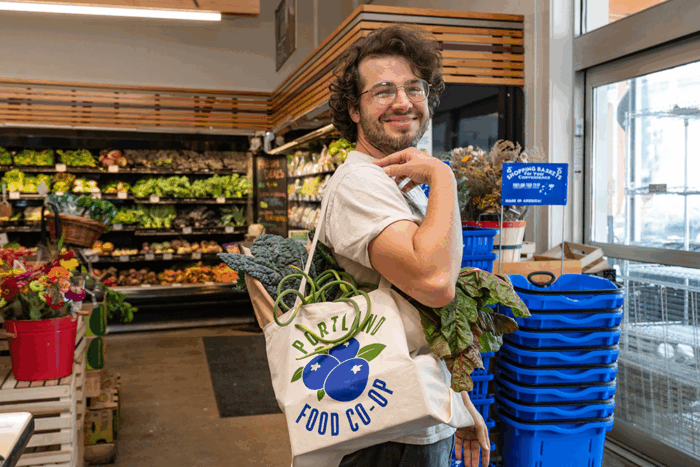
October is National Co-op Month and many may not know that cooperatives were part of the original coalition of organizations that came together and established the Consumer Federation of America (CFA) to advocate for the consumer interest. CFA’s member organizations include not only national, state and local consumer advocacy groups, but also state and local protection agencies, credit unions, rural electric cooperatives, housing cooperatives, cooperative extension offices, credit counseling agencies, social justice groups, trade unions and AARP.
Every October, Co-op Month reminds us of a quiet but powerful truth: millions of Americans already own, control and benefit from the businesses they rely on every day. For example, more than 140 million people are member-owners of credit unions—their own consumer financial institutions. Nearly 45 million Americans get their power from rural electric cooperatives that serve over half of the nation’s landmass.
These aren’t small experiments in community economics; they are some of the largest demonstrations of consumer ownership anywhere in the world. This year’s Co-op Month theme, “Co-ops Build a Better World,” captures why that matters—because when consumers own the business, the business works for people.
The Cooperative Advantage: Ownership, Control and Benefit
Cooperatives operate on a simple premise: the people who use a business should own and govern it. That model ensures three enduring benefits:
- Ownership – Members are the owners. Each credit union account, electrical meter, or food co-op membership represents a real stake in the enterprise.
- Control – Every member has a voice and a vote. Decisions are made democratically, not dictated by distant investors.
- Benefit – Any surplus is returned to members or reinvested in their communities—not sent to outside shareholders.
Those principles generally translate into better rates, fairer prices and services designed around people’s needs, not quarterly profits.
Principles in Action: The Seven Foundations of a Better World
The cooperative model is guided globally by 7 Cooperative Principles that define how co-ops behave, not just what they deliver:
- Voluntary and Open Membership – Anyone willing to use a co-op’s services can join; ownership is a choice, not a privilege.
- Democratic Member Control – One member, one vote ensures real consumer voice and accountability.
- Member Economic Participation – Members share equitably in both the investment and the rewards.
- Autonomy and Independence – Co-ops are self-help enterprises, governed by their members, not external shareholders.
- Education, Training and Information – Co-ops invest in helping members and communities understand how ownership works.
- Cooperation Among Cooperatives – Co-ops support and strengthen one another, proving collaboration can scale.
- Concern for Community – Every decision weighs social, economic and environmental impact.
These principles are more than philosophy—they are a blueprint for consumer-driven success.
- Credit unions apply them when they educate members about financial wellness.
- Rural electric co-ops embody them when they invest in broadband and renewable energy to strengthen local economies.
- Food co-ops practice them when they source locally and keep dollars circulating in their neighborhoods.
Each sector sector shows how cooperative principles translate into everyday benefits—and collective progress.
Consumers are Already Building a Better World
Credit Unions: 140 million members control more than $2 trillion in assets, delivering financial inclusion and stability where profit-first models fall short.
Rural Electric Co-ops: Nearly 45 million Americans are served by 830 member-owned utilities that electrified rural America and now lead in clean-energy transition and community broadband access.
Food Co-ops: Community-owned groceries anchor local economies and improve food access across urban and rural America.
Together, these enterprises form a nationwide cooperative economy—one where consumers already hold the power to build a better world through everyday ownership.
Why Consumer Ownership Matters Now
In a time of corporate consolidation and public distrust, consumers are looking for businesses that reflect their values. Cooperatives meet that demand because they are designed for transparency, accountability and resilience.
They don’t relocate when markets shift. They don’t chase short-term profit. They reinvest where their members live.
That is how co-ops build a better world: by aligning economic power with human values and keeping wealth rooted in community.
A Call to Recognize and Expand the Cooperative Economy
If you bank with a credit union, you already co-own your financial institution.
If you flip the switch come from a rural electric cooperative, you already own your utility.
If you shop at a food co-op, you’re investing in your community every time you buy groceries.
This Co-op Month, recognize that ownership—and look for more ways to choose cooperatives. Every time consumers opt for a co-op, they vote for fairness, participation and local economic control.
A Better World Begins with Ownership
The 7 Cooperative Principles aren’t just ideals—they are proof that shared ownership can compete, adapt and thrive. When consumers own, control and benefit from their businesses, they strengthen communities, stabilize markets and demonstrate that democratic ownership still works.
This October, celebrate Co-op Month by remembering: the power to build a better world is already in consumers’ hands.


